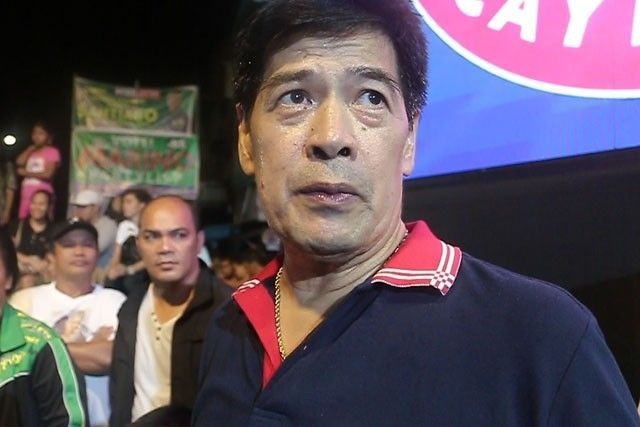Why officials' false claims of being misquoted do not help anyone

MANILA, Philippines (Updated 9:07 a.m., July 21) — Media should be quick to correct and apologize for errors in reporting but should not let government officials' claims of misreporting slide if they are false, a journalism professor said.
On Monday, Interior Undersecretary Martin Diño claimed — after public backlash — that reports that he had suggested a "shame campaign" to curb the spread of COVID-19 in the Philippines were "misquoted and entirely taken out of context."
But a review of his comments show that this is not the case.
He claimed that he had suggested shaming "quarantine violators such as those who still refuse to wear face masks, observe physical distancing and abide by the minimum health standards set by the Department of Health" despite talking about something else entirely when he made the comment.
Diño is not the first government official to blame media for statements that are not well received by the public. In May, presidential spokesperson Harry Roque called out CNN Philippines reporter Triciah Terada for supposedly taking him out of context.
CNN Philippines stood by its story and pointed out that Terada did not even write the story that Roque had complained out.
RELATED: Roque refuses call to apologize to CNN reporter after press briefing rant
"The journalist and news media organization should decisively and quickly address any government official's claim of being misquoted (usually 'quoted out of context'), Danilo Arao, who teaches journalism at the University of the Philippines and the Polytechnic University of the Philippines, said Monday in an online exchange.
"Failure to do so would make the public doubt the veracity of a report and would affect the credibility of both journalist and news media organization," he also said.
He said that if there is a factual error, media should apologize and correct it. "But if it is the government official who is mistaken, then he or she should be publicly called out for making baseless allegations at the expense of the media," he also said.
In a statement on Monday, Diño appealed "to all media outlets to be more exact and double-check my statements so as not to confuse our people at the expense of their interviewees."
In March, in response to an incorrect claim that Diño made that the bill of rights is suspended during a State of National Emergency, the DILG stressed that this was not true but also said that he may have been misquoted or that “his statements were taken out of context.”
'A form of gaslighting'
John Nery, an Inquirer columnist and board chair of the Asian Center for Journalism at Ateneo de Manila University, told Philstar.com Monday that although the claim of being misquoted or taken out of context is common, it is often easy to verify this.
"I suppose that would make the 'I was misquoted' defense a form of gaslighting," he said, referring to psychological manipulation to make someone doubt their perception of reality. "The only real response from media would be to present the quote again, or even highlight it."
He said that although an official's "base" of supporters might accept the claim of being misquoted, "the rest of the public will at the very least doubt it, especially when media forcefully presents the actual quote" in a follow-up story or in similar fact checks.
He acknowledged, however, that even presenting the actual quote in its proper context may not stop an official from "[insisting] that they were misquoted because they believe that truth is a function of power, rather than of reality, of the facts."
RELATED: Media groups dispute Aguirre's claim he was misquoted on 'Marawi meeting'
Beyond being a way for officials to avoid taking responsibility for their own statements, Nery said that "the 'I was misquoted' defense also plays into one of the main narratives the Duterte administration has propagated: That the mainstream media is hopelessly biased."
Nery, who is also convener of the Consortium on Democracy and Disinformation, said: "Part of the message being sent to the 'base' is that, well, you really can't trust these so-called journalists."
According to the 2020 Digital News Report, which also noted that "journalists have been labelled 'prostitutes,' 'fake news,' 'spies,' 'lowlifes' and 'enemy' by the president and his supporters," overall trust in media is already at a low 27% in the Philippines.
These attacks and accusations have contributed to that low trust, with the DNR, a project by the Reuters Institute for the Study of Journalism at Oxford University, pointing out that "trust in the most battered outlets has suffered, while those which have escaped the presidential wrath have performed better."
'How will the receiver understand a badly packaged message?'
Roehl Niño Bautista, a writer and a journalism lecturer at the University of the Philippines, noted that officials often use the claim of being misquoted as a "Get Out of Jail" card. He said that journalists must emphasize to news consumers that what government officials say, and how they say it, matters.
"Instead of using the 'misquote' card, government officials should suck it up and not run to the National Bureau of Investigation if they get criticized," he said, in reference to officials who are sensitive to public criticism.
"Was his statement unclear? Let's go back to the [Sender-Message-Channel-Receiver model of communication]. If the sender packages the message badly, how will the receiver understand you?"
(Editor's note: This article has been updated with data from the Digital News Report on the Philippines)
- Latest
- Trending































